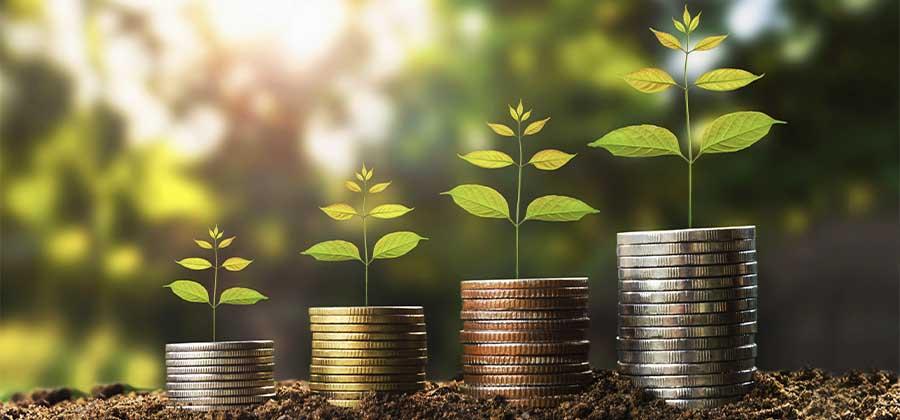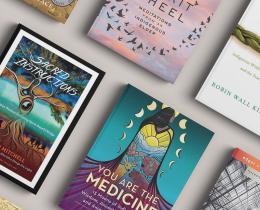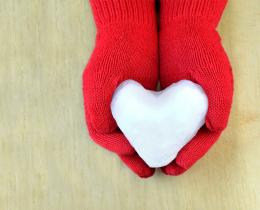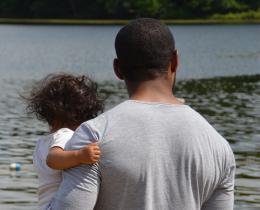For most people, medicine is something used to treat or cure a disease; it is often a human-made drug, or sometimes an herb. In Native traditions, however, medicine is a way of achieving balance. An Indigenous medicine person doesn’t just heal illnesses—he or she can restore harmony or establish a state of being, such as peacefulness. And the practice of medicine is not just limited to the hands of medicine people; everyone is welcome to participate. Traditionally, Indigenous people don’t wait to be out of balance before they turn to medicine.
In the Indigenous worldview, many kinds of things can be medicine: a place, a word, a stone, an animal, a natural phenomenon, a dream, a life event like a coffee date with a friend, or even something that seems bad in the moment, such as the loss of a job. Have you ever looked back at your life and thought, That was the best thing that could have ever happened to me? That was medicine.
In order for something or someone to serve as medicine, it only needs to be filled with or granted a kind of mystical or spiritual power. Anyone can find and use medicine, just by allowing intuition and feelings to determine whether something can serve as medicine. You listen for its sacred power; you don’t force it.
You don’t choose the medicine, the elders say—it chooses you.
We Gave Money Its Meaning & Power
It has taken me a long, long time (patience is a virtue in Indian country) to accept that the medicine that has chosen me is money. Because, I mean: money? Come on. Money corrupts. Money is dirty, even filthy. Money is the root of all evil, doesn’t the Bible say that?
But what is money but a way to measure value, to facilitate exchange? And what is exchange but a type of relationship between people? Money is a proxy for the sweat we spent on growing food, sewing clothes, assembling electronics, coding apps, creating entertainment, researching and developing innovations, and so on. It’s just a stand-in for the materials we used, the services granted, the responsibility shouldered. Money is a tool to reflect the obligations people develop toward each other as they interact.
Materially, it’s a bit of nickel, zinc, copper. It’s a little linen, mostly cotton, some ink. Actually, today mostly it’s a series of zeros and ones. Bytes, data on screens. Imaginary. Harmless.
And in fact, the Bible doesn’t say money’s the root of all evil. It says the love of money is the root of all evil—in other words, it leads to evil when we let it be more important than life, relationships, and humanity.
I’m not saying there aren’t problems with money when it’s hoarded, controlled, used to divide people, to oppress and dominate. But that’s not the money’s fault. Inherently, money is value neutral. Humans have used money wrongfully. We’ve made money more important than human life. We’ve allowed it to divide us. We forget that we humans made money up out of thin air, as a concept, a tool for a complex society. We forget that we gave money its meaning and its power.
Money is like water. Water can be a precious life-giving resource. But what happens when water is dammed, or when a water cannon is fired on protesters in subzero temperatures? Money should be a tool of love, to facilitate relationships, to help us thrive, rather than to hurt and divide us. If it’s used for sacred, life-giving, restorative purposes, it can be medicine.
Money, used as medicine, can help us decolonize.
Seven Steps to Healing
Across American history and through the present day, the accumulation of wealth is steeped in trauma. The process of healing from that trauma is central to decolonization. Acknowledging our woundedness is key. This is not just for individuals; institutions can also engage in the Seven Steps to Healing:
- Grieve. We have to stop and feel the hurts we’ve endured.
- Apologize. We must apologize for the hurts we’ve caused.
- Listen. We must acknowledge the wisdom of those excluded and exploited by the system, who possess exactly the perspective and wisdom needed to fix it.
- Relate. We need space to share our whole selves with each other and understand we don’t have to agree in order to respect each other.
- Represent. We must build whole new decision-making tables, rather than setting token places at the colonial tables as an afterthought.
- Invest. We need to put all our money where our values are.
- Repair. We must use money to heal where people are hurting and to stop more hurt from happening.



